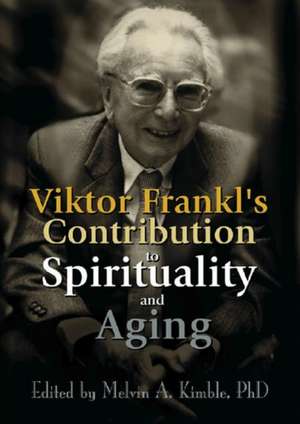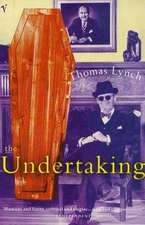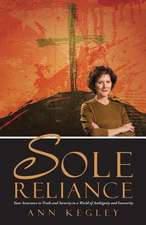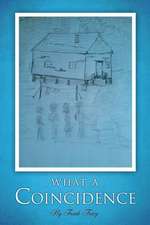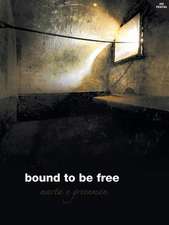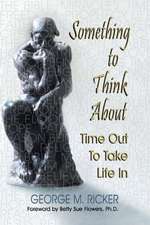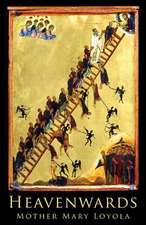Viktor Frankl's Contribution to Spirituality and Aging
Editat de Melvin A. Kimbleen Limba Engleză Hardback – 27 apr 2001
Viktor Frankl, a holocaust survivor who experienced firsthand the horrors of Auschwitz, saw man as “a being who continuously decides what he is: a being who equally harbors the potential to descend to the level of an animal or to ascend to the life of a saint. Man is that being, who, after all, invented the gas chambers; but at the same time he is that being who entered into those same gas chambers with his head held high and with the 'Our Father’or the Jewish prayer of the dying on his lips.”
Dr. Frankl's insights led him to found the therapeutic system of logotherapy, which views man as a spiritual being rather than simply as a biological construct. Logotherapy has come to be called the Third Viennese School of Psychotherapy (after Freud's psychoanalysis and Adler's individual psychology). He left a rich legacy of theory and insights especially relevant to the search for meaning in later life. The tenets of logotherapy provide many clues and approaches to what an ever-increasing body of evidence suggests regarding the crisis of aging as a crisis of meaning. Frankl’s insightful work increased man’s understanding of the spiritual dimension of humanity and the dignity and worth of every person in the face of what he called “the tragic trial of human existence: pain, guilt, and death.”
Viktor Frankl's Contribution to Spirituality and Aging presents an essential overview of logotherapy and explores:
- the search for and the will to meaning in later life
- the connection between logotherapy and pastoral counseling—bringing psychology and theology together to effectively counsel the aging
- the role of logotherapy in the treatment of adult major depression
- aspects of meaning and personhood in dementia
- the search for meaning in long-term care settings
Toate formatele și edițiile
| Toate formatele și edițiile | Preț | Express |
|---|---|---|
| Paperback (1) | 312.48 lei 6-8 săpt. | |
| Taylor & Francis – 6 apr 2001 | 312.48 lei 6-8 săpt. | |
| Hardback (1) | 497.03 lei 6-8 săpt. | |
| Taylor & Francis – 27 apr 2001 | 497.03 lei 6-8 săpt. |
Preț: 497.03 lei
Preț vechi: 523.18 lei
-5% Nou
Puncte Express: 746
Preț estimativ în valută:
95.10€ • 99.30$ • 78.71£
95.10€ • 99.30$ • 78.71£
Carte tipărită la comandă
Livrare economică 04-18 aprilie
Preluare comenzi: 021 569.72.76
Specificații
ISBN-13: 9780789011558
ISBN-10: 0789011557
Pagini: 182
Dimensiuni: 152 x 229 x 19 mm
Greutate: 0.48 kg
Ediția:New.
Editura: Taylor & Francis
Colecția Routledge
Locul publicării:Oxford, United Kingdom
ISBN-10: 0789011557
Pagini: 182
Dimensiuni: 152 x 229 x 19 mm
Greutate: 0.48 kg
Ediția:New.
Editura: Taylor & Francis
Colecția Routledge
Locul publicării:Oxford, United Kingdom
Cuprins
Contents
- About the Contributors
- A Personal Note by the Guest Editor
- Acknowledgments
- Logotherapy: An Overview
- Viktor Frankl Meets Karl Rahner: Two Similar Anthropologies
- A Dialogue Between Viktor Frankl and Charles Gerkin Regarding the Living Human Document and the Search for Meaning
- Logotherapy and Pastoral Counseling
- The Similarities Between Frankl's Logotherapy and Luther's Concepts of Vocation and the Theology of the Cross
- Actions, Feelings, and Values: Foundations of Meaning and Personhood in Dementia
- Bridging Psychology and Theology When Counseling Older Adults
- Logotherapy in the Care of the Terminally Ill
- Logotherapy and Adult Major Depression: Psychotheological Dimensions in Diagnosing the Disorder
- Meaning in Long Term Care Settings: Viktor Frankl's Contribution to Gerontology
- Index
- Reference Notes Included
Descriere
Viktor Frankl's Contribution to Spirituality and Aging represents varying professional perspectives on the application of Frankl's logotherapy for ministry with older adults. the chapter authors represent diverse professional backgrounds in medicine, pastoral theology, the behavioral sciences, and pastoral ministry. They address issues such as death and dying, dementia and depression, and the spiritual meaning of aging, as well as Dr. Frankl's conception of the nature of humanity.
